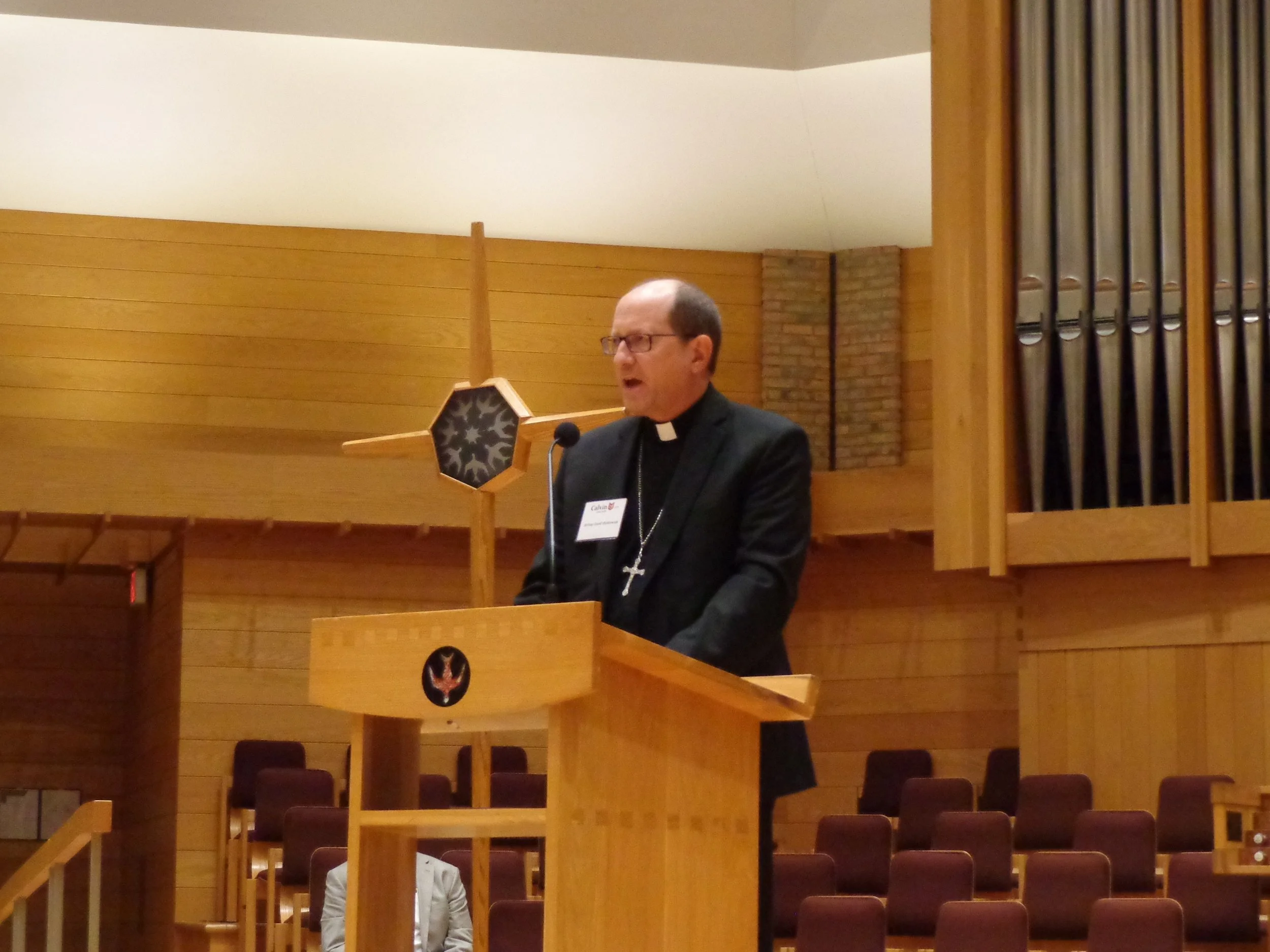CONFERENCE ORGANIZER WINS PRESTIGIOUS AWARD
Eric Boldiszar received the 2017 Bert Thompson Award for Faith-Based Program from the National Association of Community and Restorative Justice, for his work organizing the Saint Benedict Institute Hope for Restoration conference. Below is his acceptance speech.
Whenever you begin a good work pray to [God] most earnestly to bring it to perfection.” These words from St. Benedict have been constantly on my mind as I thought about the community wide effort it took to bring the Hope for Restoration: Radical Hospitality and Prison Reform conference to perfection. First and foremost, God deserves thanks and praise for making the vision of this conference a reality. Only the hand of God can craft something that brings together Catholics, Protestants, and people other faiths; it brought together people of all races and creeds, and it brought together students, academics, businessmen, activists, politicians, corrections officials, and, of all things, prisoners—all for the common goal of restorative justice and the quest for a more proactive approach to repairing the lives affected by crime in our fallen world.
This award is not just mine, it also belongs to all of you—and it is a testament to the power of your love and dedication to social justice, improving society by acknowledging the needs of crime victims, rehabilitating offenders, and restoring wholeness and harmony to the community. Individuals have dreams, but the realization of those dreams comes from people working together towards a common end. Therefore, I’d like to thank: Jared Ortiz and the Saint Benedict Institute, the Corpus Christi Foundation, Hope College and the dozens of campus organizations that stepped up to support the conference, Drs. Cioffi and deGroot, Julie “the Boss” Bylsma, Nate Roels, Calvin College and Seminary, the speakers, Ryan Nichols and my other CPI brothers, MDOC director Heidi Washington, and Warden Burton, and most importantly those who attended, who all are committed to the vision of reforming and transforming the prison culture.
Before coming to prison, I like many others, never gave prisoners a thought, and if I did, I had the perception of thugs, monsters, and cold-hearted, callous men. While I have encountered such, I have also found loving fathers, eager students, and good-hearted men caught up in bad situations. I have also witnessed the power of community programs to transform the former. It is the latter two who motivate me and my brothers to cultivate opportunities and raise awareness for the need of such programs in prison. People should not be defined solely by their worst deed; such definitions negate the human potential to learn, to change, and to become something more. Such definitions negate the possibility of redemption and restoration by refusing a much needed second chance.
America is the land of opportunity and second chances, and I dream of a criminal justice system which affords such a grace, balancing the need for justice with mercy. I dream of a criminal justice system which sets aside retribution and focuses on rehabilitation, replaces stigmatization with restoration, and foregoes condemnation for transformation. That is why I proposed radical hospitality, a faith-based, Trinitarian guide to inform the restorative justice movement. Radical hospitality is an extreme generosity of spirit that is contrary to conventional social expectations. It is active and extends its love outward to all members of the community, viewing each individual as the image of God and seeking to liberate and reconcile the dignity of both victims and offenders. It is the gift of love that we are called to extend to others as God has extended to us.
As things stand now with the criminal justice system, the road to restorative justice is the road less traveled, and therefore, I call on all of you to give of yourselves to bringing about the change our incarceration nation so desperately needs. Thus, I urge each and every one of you not only pray to God daily to bring the restorative justice movement to perfection, but also to write your senators and government official to make the restorative justice movement a reality in America’s prisons. Moreover, I urge you to connect with and work with other organizations within the restorative justice movement because the key to success will be social networking and making your presence known and felt. If you don’t think there is enough good in this world of ours, I challenge you to join me in making it.
Thank you.




















